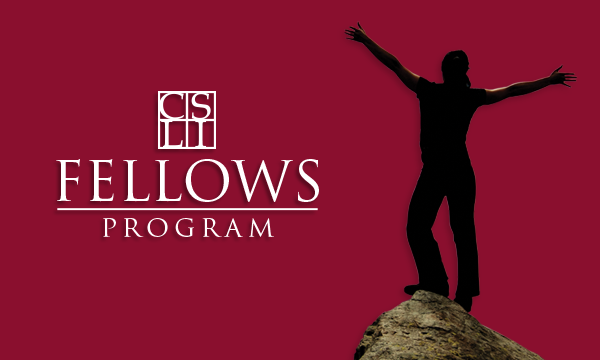Back to series



What Do You Say to Your Jewish Friends about Jesus?
Click here to open a Print - Friendly PDF
So, you’ve got Jewish friends and you want to talk to them about Jesus. You’ve read Gerald McDermott’s article about Judaism, and you’re wondering how to start connecting what you know about Judaism, what you love about Jesus, and how you long for your Jewish friends to make that connection as well.
But something is holding you back. Perhaps you’re afraid you’ll spoil the friendship. Or perhaps you feel guilty that some Christians have treated some Jewish people poorly in the past. Or maybe you just don’t know your Old Testament as well as you’d like, and you’re afraid they’ll out-quote you.
All of these fears and concerns make sense. But God is able to override them and many other impediments to our fluency. Here are some pointers for telling your Jewish friends about the Jewish Messiah and the salvation He offers.
First and foremost, pray for your Jewish friends. Please don’t dismiss this as a perfunctory cliché.
Since God loves the Jewish people, it makes sense that the devil hates them and, in addition to concocting an endless stream of anti-Semitism in the world, has blinded them to the truth God has revealed (see 2 Cor. 3:14). Pray diligently that God will work in the hearts of the Jewish people to make them hungry for truth, tired of empty ritual, and aching for forgiveness that cannot come from their own efforts, prayers, or practices.
Now, allow me to share some don’ts and do’s of Jewish evangelism. (I know. It’s usually “do’s and don’ts,” but, given the realities of Jewish history, is it any wonder that I, a Jewish believer in Jesus, would gravitate toward the negative before turning toward the positive.Think about it.)
Don’ts
Don’t think that Jewish evangelism is going to be easy. My people have had a long history of saying no! to anything even closely related to Jesus. And given the behavior of some of Jesus’ followers, you can’t really blame them. (I know that some so-called Christians really were never born again.
Granted. The problem is that some real, genuine, saved, thoughtful Christians have said and done some hateful things. Do a little research about Martin Luther’s anti-Semitism, and you’ll see what I mean.)
 Don’t be surprised if your Jewish friends don’t know their Tanakh (what Christians call the Old Testament) all that well. Don’t assume they know much about Moses, Isaiah, or other prophets. We could discuss why that’s true and why it’s a shame and how it got this way, but I’ll leave that for other writers or other times.
Don’t be surprised if your Jewish friends don’t know their Tanakh (what Christians call the Old Testament) all that well. Don’t assume they know much about Moses, Isaiah, or other prophets. We could discuss why that’s true and why it’s a shame and how it got this way, but I’ll leave that for other writers or other times.
Don’t wait for your Jewish friends to bring up the topic of Jesus. They won’t. Don’t even wait for them to bring up the topic of God. He might not get mentioned for a long time.
In fact, don’t wait for them to talk about spiritual things at all. You might be waiting when you should be guiding the conversation. God’s Word makes it clear that the gospel is “to the Jew first” (Rom. 1:16 ESV). That’s all the prompting we need to broach the topic they’d rather you avoid.
Don’t do all the talking. Jewish people generally like two-way conversation. (Actually, a lot of people do. Jewish culture and education has just been at it a bit more intensely than some others.) Ask questions. Pose puzzles. Wonder out loud and seek out responses from them.
Find out exactly what they believe about God, the afterlife, sin, righteousness, ethics, etc., by asking them to tell you about their beliefs. Don’t be surprised if some of their beliefs are not what you expect would be the standard Jewish line. Again, I could explain why that’s fairly common, but I’ll let you explore such background issues on your own.
(Chosen People Ministries and Jews for Jesus have many valuable resources and insights on their websites. They can also point you to many books that can help you grow in your understanding of Jewish culture, the connections between the Old Testament and the New, and many other pertinent issues.)
Don’t be surprised if the following question doesn’t work: “If there’s no longer a temple in Jerusalem or any sacrificial system, how do you get atonement for your sins?” That question might work for some Jewish people, but for most I’ve talked to, that’s a nonstarter. They just figure that God knows the temple isn’t currently in working condition, so he must have some other system to take care of sin. That doesn’t bother most Jewish people as much as most Christians think it should!
Do's
Do build close friendships with Jewish people. Relationships matter deeply to them and evangelism usually flows along relational lines. Given the history of persecution that most Jewish people remember, you’ll want to build trust and understanding. That takes time and intentionality. Find common ground, shared interests, and pave the way for conversations about topics that you don’t view from the same vantage point.
Do share your personal experiences with the gospel. It’s one thing to argue for the truthfulness of Christianity, the reasonableness of apologetic arguments in favor of the messiahship of Jesus, and the logical connections between the Old and New Testaments. And all of that is necessary and good.
But you will also want to tell of how that makes a difference in your life, why it was so appealing to you when you first came to faith, and how it helps you in many areas of your daily life—how it gives you hope, purpose, a clear conscience, and confidence of the reality of life after death.
Do choose vocabulary carefully. There are some words that are painful to Jewish ears. Instead of saying “Jews,” use “Jewish people.” Instead of “Christ,” speak of “the messiah.” Rather than calling yourself a “Christian,” you might try “believer in Jesus.”
Remember that Jewish history has a lot of pain in it, and some of that pain is related to evangelism. You want to minimize any triggers of negative emotions. The words you say or don’t say can make big differences.
Do admit that your conversation may be uncomfortable. Identify the elephant in the room by acknowledging the awkwardness of talking about Jesus. But don’t back down from this. Instead, pave the way for a conversation about Jesus with a conversation about the conversation. Here are a few ways you could do this:
“I realize this might be an uncomfortable conversation. But I wonder if you’d be willing to dig into this even if it’s a bit difficult.” “I’m aware that most people in our world try to avoid the topic of religion. I hope the depth of our friendship can handle it.” “Would you be willing to talk about our two faiths? I’d like to learn more about Judaism because it’s so tightly linked to my faith as a believer in Jesus.” “I’m guessing this might be difficult, but are you willing to explore these issues even if they’re not popular or easy to believe?” “I know that the history of Jewish-Christian dialogue has been a mess. I’d still like to talk about God and see if we can avoid some of the pitfalls. What do you think?”
 Do use the Bible. In particular, show how Jesus fulfilled messianic prophecy. But this may not be as simple as you might think. While there is great benefit from seeing parallel lists of “predictions” and “fulfillments,” the nature of Old Testament prophecy is fuller than many Christians realize. And that’s a good thing! In fact, a personal study of Old Testament prophecy can deepen your confidence in the Scriptures in powerful ways.
Do use the Bible. In particular, show how Jesus fulfilled messianic prophecy. But this may not be as simple as you might think. While there is great benefit from seeing parallel lists of “predictions” and “fulfillments,” the nature of Old Testament prophecy is fuller than many Christians realize. And that’s a good thing! In fact, a personal study of Old Testament prophecy can deepen your confidence in the Scriptures in powerful ways.
Then, from that deep well, you’ll be able to show your Jewish friends how Judaism and Christianity fit together, how events in the Tanakh pointed the way to a savior, and how our deepest longings can be met through the One who delivered answers to age-old questions, resolving age-old tensions.
Jesus was Jewish, and most of His first followers saw their faith in Messiah as the logical culmination of their trust in the God of Abraham, Isaac, and Jacob. But the devil has done a masterful job of obscuring the connections between the old and the new, the promised and the fulfilled, and the foreshadowed and the delivered.
God can use you to help your Jewish friends find what their Jewishness points to, and He will deepen your appreciation of your faith along the way. Some of your Jewish friends will thank you for sharing the good news. And you’ll have a very long time to rejoice together about the One at the center of those conversations.

Randy Newman
Senior Fellow for Apologetics and Evangelism, CSLIRandy Newman (1956-2024) was the Senior Fellow for Apologetics and Evangelism at the C.S. Lewis Institute. He taught at several evangelical seminaries. After serving for over 30 years with Campus Crusade for Christ, he established Connection Points, a ministry to help Christians engage people’s hearts the way Jesus did. He has written seven books, Questioning Evangelism, Corner Conversations, Bringing the Gospel Home, Engaging with Jewish People, Unlikely Converts: Improbable Stories of Faith and What They Teach Us About Evangelism, Mere Evangelism. and his most recent, Questioning Faith: Indirect Journeys of Belief through Terrains of Doubt. Randy has also written numerous articles about evangelism and other ways our lives intertwine with God’s creation. He earned his MDiv and PhD in Intercultural Studies from Trinity International University. Randy went home to be with the Lord in May 2024.

 COPYRIGHT: This publication is published by C.S. Lewis Institute; 8001 Braddock Road, Suite 301; Springfield, VA 22151. Portions of the publication may be reproduced for noncommercial, local church or ministry use without prior permission. Electronic copies of the PDF files may be duplicated and transmitted via e-mail for personal and church use. Articles may not be modified without prior written permission of the Institute. For questions, contact the Institute: 703.914.5602 or email us.
COPYRIGHT: This publication is published by C.S. Lewis Institute; 8001 Braddock Road, Suite 301; Springfield, VA 22151. Portions of the publication may be reproduced for noncommercial, local church or ministry use without prior permission. Electronic copies of the PDF files may be duplicated and transmitted via e-mail for personal and church use. Articles may not be modified without prior written permission of the Institute. For questions, contact the Institute: 703.914.5602 or email us.
-
Recent Podcasts
The Priority of Prayer
by Thomas A. Tarrants, Aimee Riegert on December 27, 2024The Kingdom of God moves forward through Prayer....Read More
-
Hyper-Realist Finds Faith – Spencer Durrenberger’s Story
by Spencer Durrenberger on December 20, 2024
-
First Steps to Loving and Understanding Our Jewish Neighbors
by Aimee Riegert, Randy Newman on December 13, 2024
-
Recent Publications
How Artists and Their Art Can Point Us to the Creator
by Russ Ramsey on December 2, 2024"... if you say that you want to...Read More
-
What about Jesus’s Childhood?
by Jim Phillips on December 1, 2024
-
Why Are Christians So Hypocritical?
by Christopher L. Reese on December 1, 2024
0
All Booked
0.00
All Booked
0.00
All Booked
23903
Fellows Program – Applications Available on February 1st!
https://www.cslewisinstitute.org/?event=fellows-program-applications-available-on-february-1st&event_date=2025-02-01®=1
https://www.paypal.com/cgi-bin/webscr
2025-02-01

Next coming event
Days
Hours
Minutes
Seconds
Fellows Program – Applications Available on February 1st!
On February 1, 2025 at 7:00 amSpeakers

Randy Newman
Senior Fellow for Apologetics and Evangelism, CSLI
Team Members

Randy Newman
Senior Fellow for Apologetics and Evangelism, CSLIRandy Newman (1956-2024) was the Senior Fellow for Apologetics and Evangelism at the C.S. Lewis Institute. He taught at several evangelical seminaries. After serving for over 30 years with Campus Crusade for Christ, he established Connection Points, a ministry to help Christians engage people’s hearts the way Jesus did. He has written seven books, Questioning Evangelism, Corner Conversations, Bringing the Gospel Home, Engaging with Jewish People, Unlikely Converts: Improbable Stories of Faith and What They Teach Us About Evangelism, Mere Evangelism. and his most recent, Questioning Faith: Indirect Journeys of Belief through Terrains of Doubt. Randy has also written numerous articles about evangelism and other ways our lives intertwine with God’s creation. He earned his MDiv and PhD in Intercultural Studies from Trinity International University. Randy went home to be with the Lord in May 2024.






